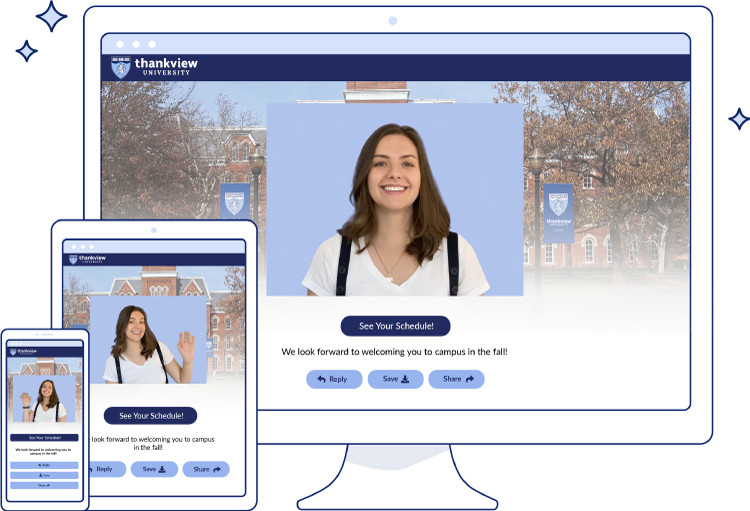Grants for Nonprofits: Where to Find Them and How to Ace Your App
There’s no denying that grants for nonprofits help us bring dream projects to reality, transform lives, and allow us to make a bigger impact on the world. But while there’s often grant funding available, it can be annoyingly hard to find.
In this article we give you a simple explanation of what grants are, where to find them, and how they’re useful. Then we’ll give our best advice on how to lock in that grant through an expertly crafted application.
What Are Grants, Exactly?
A grant is a sum of money or contribution given to an organization, usually for a specific cause. Grants are typically dependent on you achieving a specific outcome, so there’s often milestones to meet and deadlines to reach to claim financial support.
Grant recipients are known as grantees, with companies or governments supplying the funds known as grantors. You might also see these organizations talked about as funders or grant makers. They’re the organization that’s about to help your project take off.
Grantors can set the terms for their grants based on their own requirements and priorities. This means that grants are often for a set purpose or designed to support a specific local area, industry, or cause. There’s a real mix of interests and passions that come from different grant sources, so there’s something out there for every cause from art to animal welfare.
What Can Grants Do for You?
Grants are often used to allow a project to start, develop, or expand. You might have some initial funds to put towards a new initiative, but need some extra support to help you turn it into reality.
In the case of grants for nonprofits, these funding sources often help the organization have a greater impact on the world around them. Organizations, governments, and states may have desires (or requirements) to support their local community, encourage prosperity, or give back in some way. Supporting nonprofits with grants is an effective way to do this.
Here are some examples of how grants could be used to further your cause:
- Allow you to create more support packages to send to families in your neighborhood
- Enable investment in technology to help you run your nonprofit more efficiently
- Help you teach life skills to kids by supplying much-needed equipment
- Create a program that gives underprivileged kids new experiences, like visits to a farm or scholarships for study
Every nonprofit will have its own cause, priorities, and projects in mind. Figure out what you want to achieve so you can easily filter through the list of grants. Think of it like online dating — when you know what you want, you can filter through your options better. But unlike most online dating experiences, this’ll help you find your perfect match.
Where to Find Grants for Nonprofits

Finding the right grant can transform a project and help you make a lasting impact. While some grants are well advertised, others are diamonds in the rough. To help you dig up the right opportunities, here are some stellar places to find grants for nonprofits.
Government Grants
The best place to find out which government grants (also known as federal grants) are available in the United States is to head to Grants.gov. Here you can search through the database online or through the app to find relevant opportunities. There’s also a learning center designed to help you find and understand the sometimes-confusing world of government grants better (like how to avoid being scammed — important stuff!).
Local and Statewide Grants
In addition to federal grants, you might find success with local or statewide grants for small businesses and nonprofits. Get in touch with your local office to ask about which grants and funding opportunities are available. It’s also worth contacting relevant state departments — like the Department of Education — for support.
Grantwatch
This is a great place to source funding opportunities as it’s designed with nonprofits in mind. At Grantwatch you can run searches to find relevant grants by category, newness, geographic area, and more. You can also check out the news section to find out about new grants and future opportunities. Definitely one to add to your bookmarks.
Foundation Center
Candid’s Foundation Directory Online is a useful resource for nonprofit organizations and community foundations looking for grant funding. While this isn’t a free tool, it does give you access to details about grantmakers and where to find grant programs for nonprofits. It’s well-worth a budget meeting to see if you can swing the cost.
Take Inspiration From Other Nonprofits
Find grantmakers by taking a peek at what other national or local nonprofits are doing. Examine other organizations in your sector and see where their grants or funding come from. You can also look at their news releases to see which funds they’ve been successful at raising, then run a quick Google search to see if they’re offering grants. This will help you identify potential grantors.
A Simple Guide to the Grant Application Process
Sometimes finding the right grant is the easy part. It’s the application process that can really trip you up. If you’re new to grant applications or want a refresher, here’s a look at the steps involved.
Know What You Need
Before you get started, figure out what you’re looking for and what you need. Maybe you need funds to support the extension of a successful program, or you’re looking for a grant to help you develop a new project. This will help you stay focused on your priorities and make it easier to find the right kind of grants.
Research What’s Available
Next up, head to some of the resources above to search for available grants. With most grant search engines you can filter results to help you quickly find something relevant. Narrow down opportunities by location, grant amount, industry, and deadlines until you find results along the lines of what you’re looking for. Make this a regular habit and you’re more likely to strike lucky.
Create a Priority List
As you’re looking through grant search results, start building a shortlist. Review each grant in detail to understand whether it’s relevant, how likely you are to be successful, and whether it helps you reach your goal. If not, move on and keep looking for one that does. If there are plenty of grants in the sea, narrow your priority list down further by thinking about which would bring your nonprofit or project the most value.
Apply to Relevant Grants
Once you’ve created a shortlist, it’s time to start applying for grants! Unless you have a large team or are up against a tough deadline, focus your attention on one grant application at a time. That way, you can give the application your best effort.
Read through the grant documentation until you know it like your favorite takeout menu, and call on the resources of your team to help you complete the application form fully. Include as much relevant information as possible, and don’t be afraid to ask the grantor any questions you might have.
Tips to Help You Get the Grants You Want

Competition for grants and funding can be fierce. Help your project stand out from the crowd with our grant application tips and hints.
Know Your Project and Required Funds
Have a clear view of your project, your goals, and how much funding you need to make it a reality before you apply for grants. Not only does this help you with finding the right grants, but it makes writing your application so much easier. With your project already scoped out it’s easier to rally support, demonstrate value for money, and convince the grant-making organization that your nonprofit is a great match.
Check Eligibility and Conditions
Most grants tend to have strict eligibility criteria. This means you’re sometimes ruled out and have to keep looking, but it’s great news if you’re a perfect match. Get a good understanding of what the grant involves, who is eligible, and what demands you’ll need to meet so you can make a decision about whether to apply or not. Focus only on grants that you meet the criteria for, and disregard any that you don’t. The right grant is out there somewhere.
Demonstrate That You Meet the Criteria
When you’re writing your grant application, make it clear to the grantor that you understand what they’re looking for. This might be as simple as confirming that you provide educational services or that you’re based in a certain state. Provide evidence that you meet the grant criteria, and offer as much relevant information as possible.
For example, if they ask you to prove previous results, make sure you have some examples of this with data to back it up. This shows that you understand the grant terms and means you won’t get rejected because you forgot to mention why your project is relevant.
Provide Examples of Past Success
While some grants are designed to support new nonprofit organizations, others might require evidence of past success. If you want to apply for these grants, have some useful facts, figures, and examples ready. You could even repurpose some of your fundraising or crowdfunding video testimonials to act as evidence of your success.
It’s much easier to jump into writing your application if you know you have some great examples ready. If you find yourself applying for grants often, it might make sense to create a folder full of this evidence that you can refer back to for future applications. Ask the rest of your team to contribute to it, too.
Bring In Extra Support If You Need It
Sometimes there just aren’t enough hands on deck. If it’s a major grant or you’re a small team, or if you’re just extremely busy, it might be worth bringing in some extra help. The right grant application can have a huge impact on a nonprofit, so bring in the best resources you can.
This might mean hiring someone to research grants or taking on someone with specialist grant writing experience. You might also consider outsourcing some of your current workload so you’re free to focus on the grant application. Don’t be afraid to hand off some of those plates before you drop them all.
Give Yourself Plenty of Time
Whether it’s your first grant application or you’re a seasoned pro, they often take up a lot more time than any of us expect. Give yourself plenty of time and thinking space to work on your grant applications. This might mean pausing some of your usual workload to focus on this, but it could make all the difference.
Make sure you know the grant application deadline and create your own timeline to meet this, with enough space for internal reviews and tweaks before you submit your final grant proposal. Applying for grants can be a busy and stressful time, so try and schedule some downtime for yourself and your team after an important submission.
Get That Grants for Your Nonprofit
With the right knowledge and some insider tips, it’ll be easier than before to see success with your grant applications. Get clear on why your project matters, how the grant works, and what you’ll need to start building a winning grant application. If you find a way to share your passion and energy with the grantors, you’ll stand out from the crowd.
Now that you’ve locked in that sweet grant, consider using video as a way to thank supporters and plan fundraisers for your nonprofit. Set up a demo with ThankView today!
